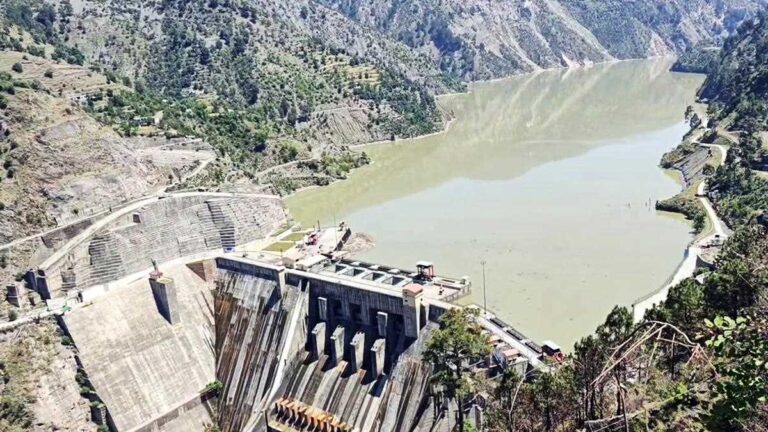
Source: USIP
Ayesha Malik
If Ukraine’s lawfare moves after Russia’s invasion have taught us anything, it is that Pakistan’s response to India’s occupation and annexation of Kashmir has been woefully anemic. Since Article 370 was abrogated, all Pakistan has managed to achieve is a closed door meeting of the Security Council (at China’s behest) and statements by Special Rapporteurs condemning India’s actions. This amounts to very little and, compared to Ukraine, which has filed cases regarding the invasion at almost every international legal forum, all Pakistan has managed to do is keep the Kashmir issue alive.
Meanwhile, the Bharatiya Janata Party (BJP), congenital plagiarists as it is of the Israeli playbook, commit to changing the demographics of the region so Muslims are in the minority (if they have to be there at all) and Kashmiris riot without hope in a region pockmarked by the scars of pellet guns beneath signs loudly proclaiming that the region is open for business. It hardly seems enough for us to continue like this, where an embittered Pakistan seeks catharsis from the UN and is always left wanting. Therefore, Pakistan needs to rethink its policy so it is bolder, more creative and, most importantly for legal purposes, organized.
Having worked on the situation in Jammu and Kashmir for a number of years, the author is always reminded by something she heard in a security meeting in South Sudan. The civil war in that country was known as an onion conflict in that it is not easily categorizable – every layer has another one underneath, clans fought each other over religion, ethnicity, tribe, language, and more. Someone was bemoaning the fact that up until independence from Sudan these warring factions had a common enemy but no common vision for the future, and thus descended into internecine fighting immediately after the referendum. That situation is reminiscent of Kashmir in so many ways. The common enemy is apparent, but there is no common vision for a future and what that would look like.
Just as fortune favours the brave, international law favours the organised and yet there is no organised Kashmiri opposition. If there were, this movement could be recognised as a belligerent to the conflict, so long as it possessed some territory of its own, had set up its own government, and agreed to abide by the laws of war. Pakistan could recognise its belligerency as Venezuela recognised the belligerency of the FARC group in Colombia in 2008. However, unlike the FARC, which decried the laws of war as elitist, this group should declare that it agrees to be bound by these rules. In recognising its belligerency, Pakistan would have to abide by the laws of neutrality, under which no ammunition or war material can be provided to belligerents, only humanitarian assistance. As Pakistan’s support for resistance groups in Kashmir in the past has brought with it its own finger-wagging, it should declare it will abide by the laws of neutrality.
Pakistan also needs to change its own policy in order to force the UN to take up the issue. India keeps insisting the issue is a bilateral one under the Simla Agreement which says that both countries will “settle differences…through bilateral negotiations”. But India has unilaterally altered the situation by annexing Kashmir, and therefore the Simla Agreement has been materially breached. Pakistan should withdraw from it with as much fanfare as possible, insisting that there is no option for bilateral resolution. Also, the Simla Agreement has been pretty useless for some time as it also prevents us from resolving other issues such as Sir Creek given India keeps citing ‘bilateral’ obligations under the Agreement as a reason for refusing a third-party arbiter.
At the same time, Pakistan ought to ask the UN Military Observer Group for India and Pakistan (UNMOGIP) to leave its territory. India has stopped engaging with UNMOGIP since the Simla Agreement and does not allow it on its side of the Line of Control (LoC). Pakistan meanwhile continues to lodge protests regarding India’s ceasefire violations with it. Interestingly, India has not written to the Security Council to withdraw UNMOGIP as it does not want to open the Pandora’s box of the Kashmir dispute. Pakistan should force the issue by withdrawing from Simla and asking UNMOGIP to leave, giving rise to the Kashmir question at the Security Council once again.
Pakistan should be lobbying hard for the Human Rights Council to act on the Office of the United Nations High Commissioner for Human Rights’ recommendation from 2018 to establish a commission of inquiry into human rights violations in Kashmir. In doing so, it should request a resolution similar to that issued on Palestine where the commission was told to establish a criminal investigating unit and prepare dossiers to prosecute individuals. In Kashmir, we know who these criminals are – we know the name of the soldier who strapped a Kashmiri to the front of his jeep and drove around for 28 kilometres to punish people for stone-throwing. It is Major Leetul Gogoi and he was given a medal for his crimes.
Pakistan should also ensure its own case is stronger – by dehyphenating the Azad Kashmir dispute from Gilgit Baltistan. Not only are these areas distinct geographically, they are also light years apart psychologically – with their own religions, languages, and culture – and should never have been fused together under the same ‘issue’. The best time to do this would have been when the dispute was created in 1947, the second best time is to start now.
What we cannot do is go along on this weak current of non-resistance. While resolving the Kashmir question seems almost unimaginable given it has been 75 long years, it does not have to be. The arc of the moral universe might be long, but sometimes you need to bend it toward justice.
Ayesha Malik is a Research Fellow at the Research Society of International Law and Team Lead for the Conflict Law Centre.




